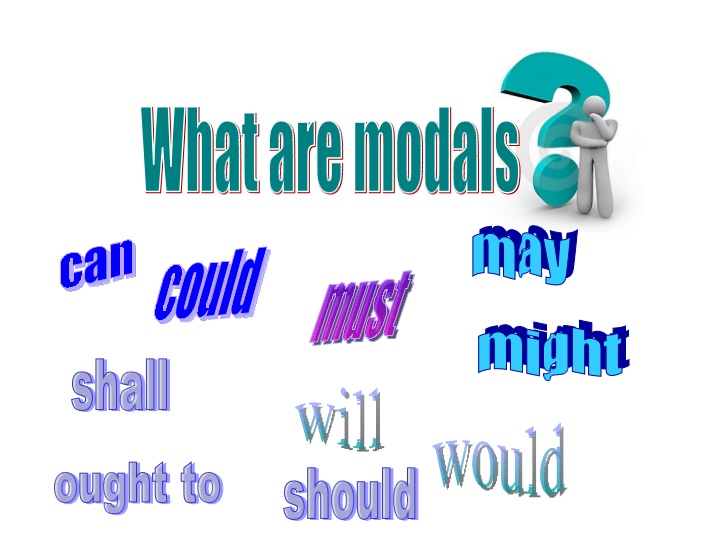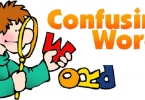Modal Verb - động từ khiếm khuyết và cách dùng (Phần 1)
Động từ khiếm khuyết là gì và cách dùng ra sao? Hãy cùng tìm hiểu nhé
Modal verb là động từ được giữ nguyên thể và gồm có các từ: will, would, can, could, may, might, must, shall và should. Sau đây là các động từ khiếm khuyết và cách dùng của nó
Modal verb là động từ được giữ nguyên thể và gồm có các từ: will, would, can, could, may, might, must, shall và should. Sau đây là các động từ khiếm khuyết và cách dùng của nó
1. Can
Cách dùng: để thể hiện khả năng (ability), sự cho phép (permission) hay là đưa ra đề nghị (offers)
Ví dụ:
- Ability: Jame can swim
- Permission: Can I come with you?
- Offers: Can I help you?
Ví dụ:
- Ability: Jame can swim
- Permission: Can I come with you?
- Offers: Can I help you?
2. Could
Cách dùng: thể hiện sự có thể (possibility), sự khả năng trong quá khứ (past ability), sự cho phép (permission) và yêu cầu (requests)
Ví dụ:
- Possibility: That story could be true - who knows!
- Past ability: Charlie could swim when he was 4 years old
- Permission: Could I use your phone, please?
- Requests: Could you tell me the way to the station, please?
Ví dụ:
- Possibility: That story could be true - who knows!
- Past ability: Charlie could swim when he was 4 years old
- Permission: Could I use your phone, please?
- Requests: Could you tell me the way to the station, please?
3. May
Cách dùng: thể hiện sự có thể (possibility) và sự cho phép (permission)
Ví dụ:
- Possibility: The president may come to our offices
- Permission: May I borrow your dictionary?
Ví dụ:
- Possibility: The president may come to our offices
- Permission: May I borrow your dictionary?
4. Might
Cách dùng: thể hiện sự có thể với mức độ ít hơn (slight possibility) và là thể quá khứ của "may" trong câu tường thuật
Ví dụ:
- Slight possibility: We might win prize but I doubt it
- Past form of "may" in reported speech: They said they might come
Các động từ khiếm khuyết có thể dùng chung cho tất cả các ngôi và không chia theo thì.
Ví dụ:
- Slight possibility: We might win prize but I doubt it
- Past form of "may" in reported speech: They said they might come
Các động từ khiếm khuyết có thể dùng chung cho tất cả các ngôi và không chia theo thì.

Modal verb - động từ khiếm khuyết (Nguồn: slideshare)
5. Should
Cách dùng: đưa ra lời khuyên (advice) hay suy luận hợp lý (logical deduction)
Ví dụ:
- Advice: You should take an umbrella in case it rains
- Logical deduction: I've revised so I should be ready for the test
Ví dụ:
- Advice: You should take an umbrella in case it rains
- Logical deduction: I've revised so I should be ready for the test
6. Shall
Cách dùng: đưa ra đề nghị (offers) và dùng với ngôi "I" và "we"
Ví dụ:
- Shall I order a taxi?
- Shall we go out for dinner?
Ví dụ:
- Shall I order a taxi?
- Shall we go out for dinner?
7. Will
Cách dùng: khả năng xảy ra trong tương lai (future tense) hay là lời mời (invitations)
Ví dụ:
- Future tense: Tomorrow I will be New York
- Invitations: Will you join us for coffee?
Ví dụ:
- Future tense: Tomorrow I will be New York
- Invitations: Will you join us for coffee?
8. Must
Cách dùng: diễn tả sự bắt buộc (obligation) hay là sự suy luận có tính chắc chắn (logical deduction)
Ví dụ:
- Obligation: You must keep it a secret
- Logical deduction: She must know London well. She has lived there all her life
Vừa rồi cách dùng động từ khiếm khuyết và ví dụ kèm theo. Hy vọng sẽ giúp ích cho các bạn trong quá trình học tập!
>>Động từ theo sau là Gerund hay To Infinitive
>>Động từ khiếm khuyết tiếng anh quan trọng
Ví dụ:
- Obligation: You must keep it a secret
- Logical deduction: She must know London well. She has lived there all her life
Vừa rồi cách dùng động từ khiếm khuyết và ví dụ kèm theo. Hy vọng sẽ giúp ích cho các bạn trong quá trình học tập!
>>Động từ theo sau là Gerund hay To Infinitive
>>Động từ khiếm khuyết tiếng anh quan trọng
Theo languagelearningbase











Bình luận